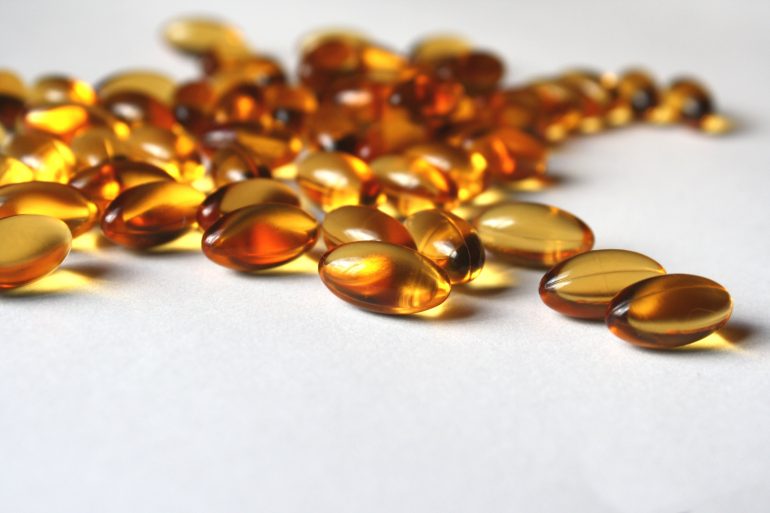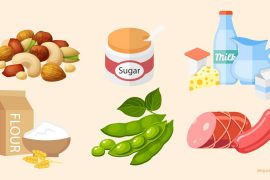The topics of vitamins and the questions I get about which ones I take seem to be never-ending.. However, it’s always a subject that I love to talk about, as I find it so incredibly interesting what types of foods, vitamins and supplements we can feed our bodies with to ultimately make them stronger and more resilient in any capacity, whether that may be physically or mentally.
I never used to be much of a vitamin person, in fact I hated taking pills as I find it gross to swallow them.. I’d be lying if I’d say I love swallowing my tablets today, but I’m much more used to it, and the benefits I ripe from taking my vitamins and supplements make up for the 10 seconds of ‘swallowing-hell’ I have to go through every morning and night.
The vitamins have all helped, and still help me combat my disordered eating and the damage it’s done to my body for years.
So, to give you an idea of what I take on a daily and weekly basis of Vitamins & Supplements keep reading on below to find out.
It’s IMPORTANT to remember that I’m not a medical professional, and the below vitamins are simply what I find beneficial for my body and mind. Take the below as a guidance and you can always consult with a professional before you start.
Here goes..
1. Vitamin B-Complex:
I take B-Complex 100 from Blue Bonnet.
The complex of B vitamins is important for normalising eating patterns because they help stabilise blood glucose levels. The vitamins that make up the B complex include thiamin, riboflavin, niacin, B6, B12, pantothenic acid, inositol, biotin, folate, and others that work together to convert carbohydrates into glucose—which means these vitamins help provide energy, decrease sugar cravings, fight fatigue, and ease hypoglycaemia-related mood swings. These vitamins are also important in preventing depression.
The B vitamins that are most important to appetite control include vitamin B6, vitamin B12, inositol, and folate.
2. Curcumin
I take Curcumin C3 Complex from California GOLD Nutrition.
Recent studies have revealed the healing powers of curcumin, a component of the household spice turmeric.
With antioxidant and anti-inflammatory properties, curcumin imitates the antidepressant actions of two prescription drugs (fluoxetine and imipramine) without any of the side effects.
It has also been touted as an anti-obesity agent for its ability to reduce body fat and weight gain.
In a study published in the Journal of Nutrition, mice that were fed a high-fat diet supplemented with curcumin had decreased weight gain and lowered cholesterol levels.
Extensive research has focused on curcumin’s ability to combat symptoms of depression.
3. Gastrointestinal Tract Repair
I take CytoPro Repair from Eagle Professional Medicine each morning and each night to help repair my gut and gastrointestinal tract.
It has herbal extracts and nutrients with a high dose of Glutamine to support the structural integrity and function of the gastrointestinal tract.
- Glutamine plays a role in maintaining normal mucosal integrity of the gut, decreasing permeability and is the principal energy source of epithelial and immune cells.
- Vitamin A helps support the mucosal integrity of the gut.
- Zinc and Vitamin D3 play a role in supporting healthy immune system function.
- Turmeric and its constituent Curcumin possess significant antioxidant activity (and enhance activity of other antioxidants such as glutathione).
- The dietary fibre provided by kiwifruit and larch arabinogalactans contributes to a prebiotic effect.
- Prebiotics are non-digestible food ingredients that beneficially affect the host by stimulating the growth and/or activity of one or a limited number of bacteria in the colon that can improve host health.
4. Probiotics:
I take Go Probiotic 75 Billion from GO Healthy.
Your appetite depends, in part, on the proper function of your intestines, and one of the key ways to improve intestinal functioning is through the use of probiotics. Probiotics are microorganisms—“good” bacteria that help the body digest and absorb vitamins, fatty acids, and other nutrients.
The human intestinal tract is home to as many as 100 trillion of these organisms, which form the intestinal environment, or microbiota. The quality, quantity, and physiological activity of the bacteria can easily be changed for the worse by antibiotics, birth control pills, poor nutrition, and stress.
As their levels decrease or otherwise change, a corresponding increase in physical and psychological problems may occur, including changes in appetite and weight.
5. Gymnema Sylvestre:
I take Gymnema Sylvestre from Source Naturals.
Gymnema sylvestre is a traditional ayurvedic herb that is native to Central and Western India, Africa, and Australia. Its Hindi name, gurmar, means “destroyer of sugar.”
It is considered to have anti-diabetic properties. When the leaves are chewed, they interfere with the ability to taste sweetness, so it can be helpful for suppressing sugar cravings.
The active property of gymnema is gymnemic acid, which has the ability to delay glucose absorption in the blood. Because the molecular structure of gymnemic acid is similar to that of glucose, it can help curb sugar cravings by filling in the receptor locations of sweet taste buds. Though more research is needed, gymnema may be an alternative medicine to treat sugar cravings because of its efficacy in blocking sugar-binding sites and inhibiting sugar molecules from accumulating in the body.
When used as part of an individualised and integrative treatment plan, supplements can help to enhance metabolism, stabilise blood sugar, and resynchronise hormones, thereby restoring appetite to a helpful and harmonious normal.
Gymnema Sylvestre may work to not only normalise your appetite, but also to balance your mood and fight depression.
6. Chrome:
I take Chrome from Eagle Professional Medicine.
Inadequate chromium levels result in carbohydrate cravings, impaired glucose tolerance, hypoglycaemia, and depression. Chromium is an essential part of glucose tolerance factor, a compound that helps insulin move blood sugar into the cells. Chromium works with the insulin receptors on the cells and helps “open the doors” so that glucose can enter. And even though the body contains a trace amount of chromium, when its stores become depleted, the effectiveness of insulin and the body’s ability to handle glucose can markedly decrease. Poorly controlled glucose levels, in turn, can result in sugar or carbohydrate cravings and an increase in hunger.
7. Vitamin D:
I take Vitamin D from VÖOST.
Despite the name, vitamin D is considered a pro-hormone and not actually a vitamin. Vitamins are nutrients that cannot be created by the body and therefore must be taken in through our diet.
However, vitamin D can be synthesised by our body when sunlight hits our skin. It is estimated that sensible sun exposure on bare skin for 5-10 minutes 2-3 times per week allows most people to produce sufficient vitamin D, but vitamin D breaks down quite quickly, meaning that stores can run low, especially in winter.
Having enough vitamin D is important for a number of reasons, including maintaining healthy bones and teeth; it may also protect against a range of conditions such as cancer, type 1 diabetes, and multiple sclerosis.
Vitamin D has multiple roles in the body, helping to:
- Maintain the health of bones and teeth.
- Support the health of the immune system, brain, and nervous system.
- Regulate insulin levels and aid diabetes management.
- Support lung function and cardiovascular health.
- Influence the expression of genes involved in cancer development.
8. Magnesium:
I take GO Magnesium 800 High Strength from GO Healthy.
Magnesium plays vital roles in many of the body’s metabolic processes, including the conversion of protein, fat, and carbohydrates into energy. Moreover, magnesium is necessary for the proper function of more than 300 enzymes, including those necessary for the synthesis of neurotransmitters such as serotonin. Common symptoms associated with a lack of magnesium include headaches, constipation, insomnia, premenstrual syndrome, fatigue, anxiety, insulin resistance, and sugar cravings.
It also really helps me to sleep much better and for my body to recover quicker after training throughout the week.
9. Iron:
I take Iron Sustain from Bioceuticals.
Iron is an important component of hemoglobin, the substance in red blood cells that carries oxygen from your lungs to transport it throughout your body. … If you don’t have enough iron, your body can’t make enough healthy oxygen-carrying red blood cells. A lack of red blood cells is called iron deficiency anemia.
If you are a vegetarian or vegan in particular, you will mostly likely need an iron supplement to compliment your diet, as it’s incredibly hard to eat enough (and varied) vegetables containing iron.
10. Digestive Enzymes:
I take Multigest Enzymes from Bioceuticals.
Recovery from disordered eating depends on a healthy digestive system. Often, people are eating healthy diets consisting of organic foods and adequate protein, yet their blood work reveals they are malnourished. Nutritional status is not based on what you eat. Instead, it depends upon your ability to digest and absorb the nutrients from food.
- Helps maintain healthy digestive function.
- Assists in the breakdown of dietary proteins, carbohydrates and fats.
- Contains enzymes that are active across a wide pH range.
- Used in traditional European medicine for relief of digestive disturbances, such as:
- dyspepsia
- bloating and digestive discomfort
- flatulence
- poor appetite.
- Assists in the digestion of lactose.
- Helps improve bioaccessibility of nutrients.
As I mentioned above – please take these as a guideline as I’m not a medical professional. I have only tested out these vitamins on my own body, however I’ve found a significant increase in overall health, wellness and help with my sugar-cravings and restoration or normalised eating-patterns.
Hope you like it.
Anna xx





Amazing article! Food is medicine